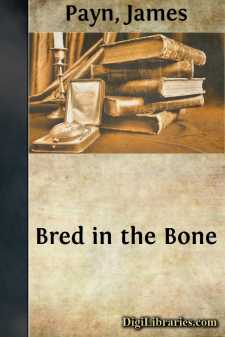Categories
- Antiques & Collectibles 13
- Architecture 36
- Art 48
- Bibles 22
- Biography & Autobiography 813
- Body, Mind & Spirit 142
- Business & Economics 28
- Children's Books 15
- Children's Fiction 12
- Computers 4
- Cooking 94
- Crafts & Hobbies 4
- Drama 346
- Education 46
- Family & Relationships 57
- Fiction 11828
- Games 19
- Gardening 17
- Health & Fitness 34
- History 1377
- House & Home 1
- Humor 147
- Juvenile Fiction 1873
- Juvenile Nonfiction 202
- Language Arts & Disciplines 88
- Law 16
- Literary Collections 686
- Literary Criticism 179
- Mathematics 13
- Medical 41
- Music 40
- Nature 179
- Non-Classifiable 1768
- Performing Arts 7
- Periodicals 1453
- Philosophy 64
- Photography 2
- Poetry 896
- Political Science 203
- Psychology 42
- Reference 154
- Religion 513
- Science 126
- Self-Help 84
- Social Science 81
- Sports & Recreation 34
- Study Aids 3
- Technology & Engineering 59
- Transportation 23
- Travel 463
- True Crime 29
James Payn
James Payn (1830–1898) was an English novelist and editor, known for his prolific output and contribution to Victorian literature. He wrote numerous novels, the most famous being "Lost Sir Massingberd" and "By Proxy," which were popular for their engaging plots and light style. In addition to his fiction, Payn was also the editor of "Chambers's Journal" and later "Cornhill Magazine," where he supported and promoted emerging writers. His work is characterized by humor, wit, and a focus on middle-class life.
Author's Books:
Sort by:
by:
James Payn
CHAPTER I. CAREW OF CROMPTON. Had you lived in Breakneckshire twenty years ago, or even any where in the Midlands, it would be superfluous to tell you of Carew of Crompton. Every body thereabout was acquainted with him either personally or by hearsay. You must almost certainly have known somebody who had had an adventure with that eccentric personage—one who had been ridden down by him, for that...
more...
by:
James Payn
THE MIDWAY INN. 'The hidden but the common thought of all.' The thoughts I am about to set down are not my thoughts, for, as my friends say, I have given up the practice of thinking, or it may be, as my enemies say, I never had it. They are the thoughts of an acquaintance who thinks for me. I call him an acquaintance, though I pass as much of my time with him as with my nearest and...
more...



